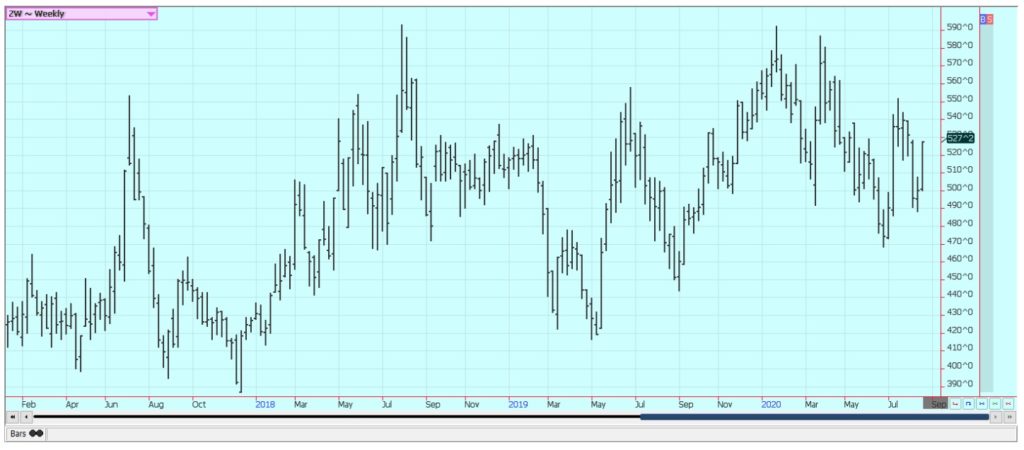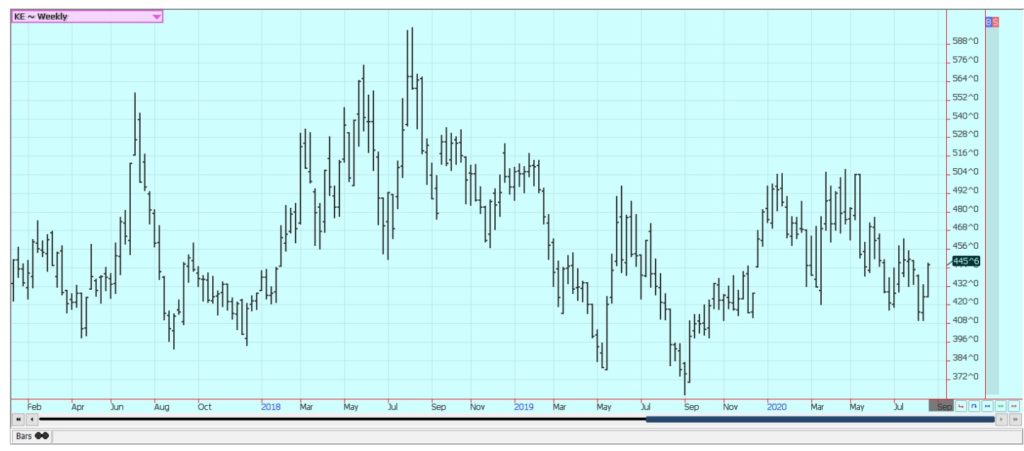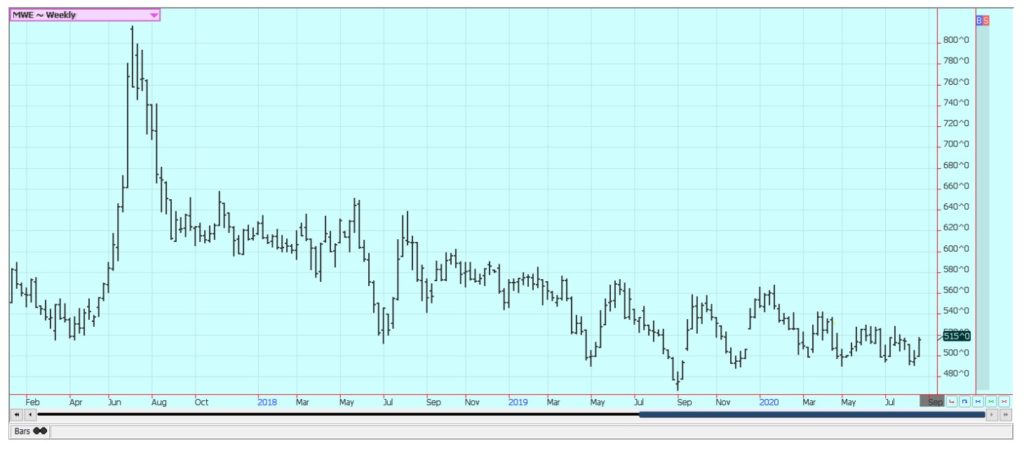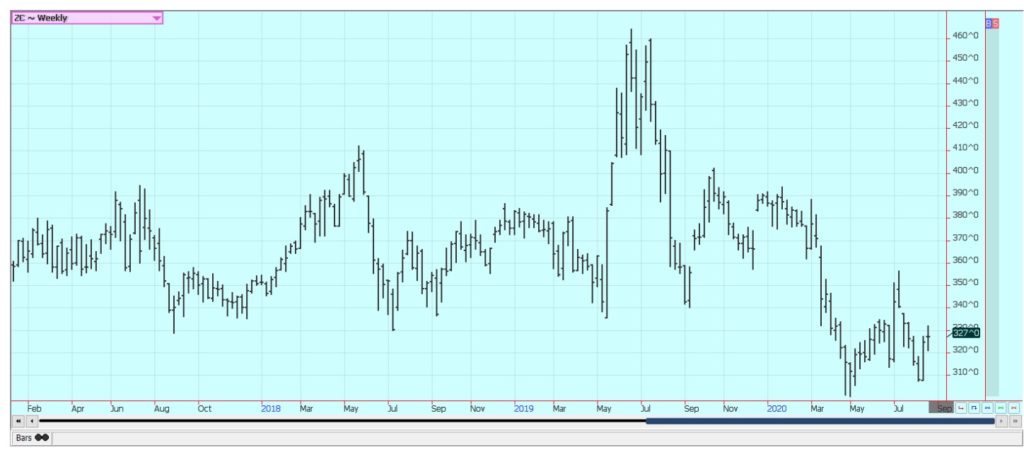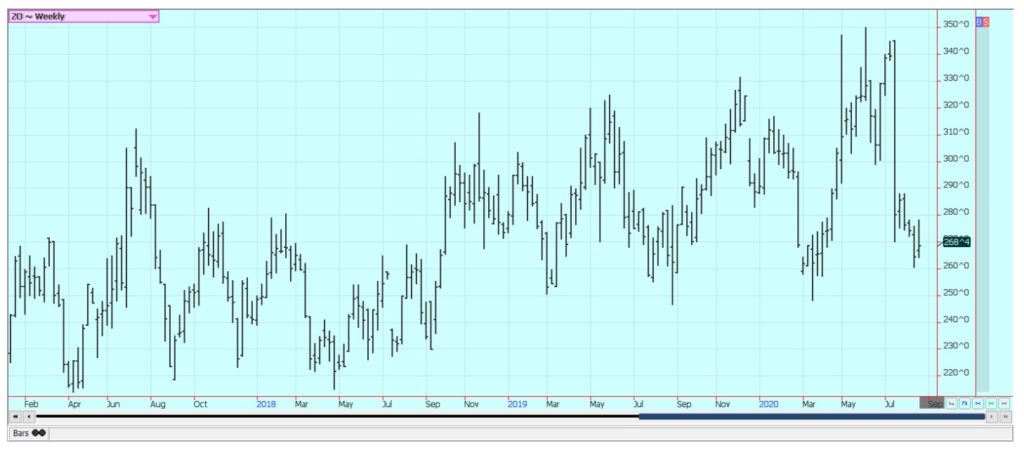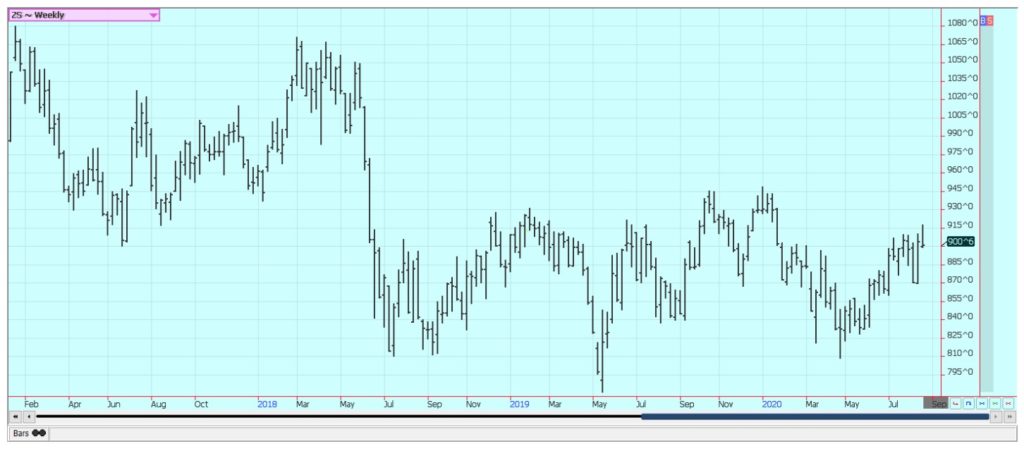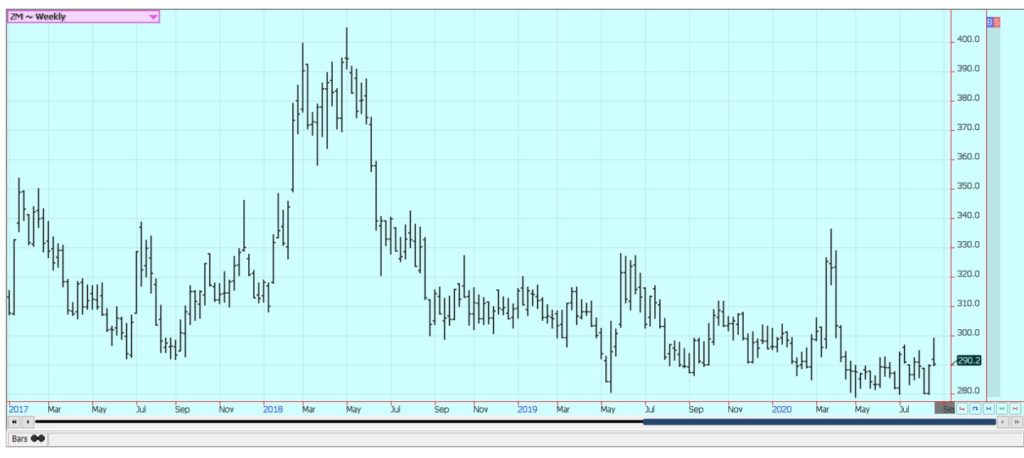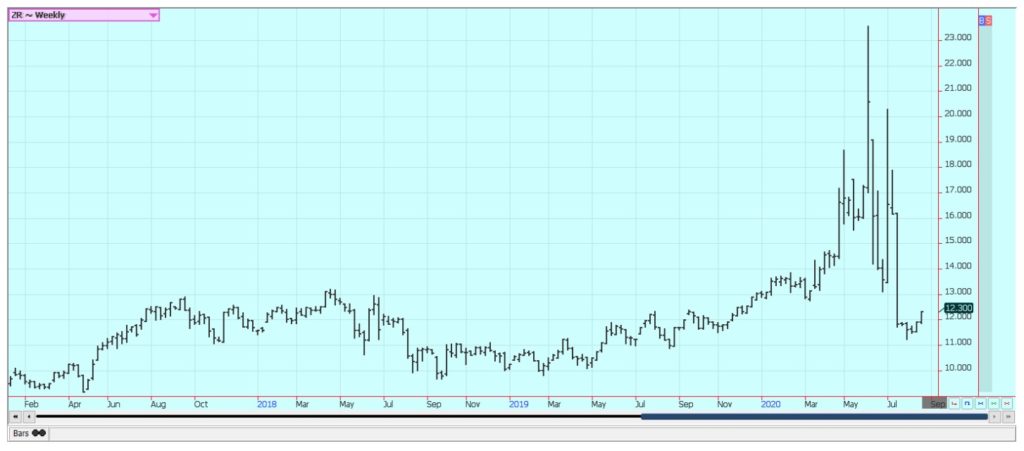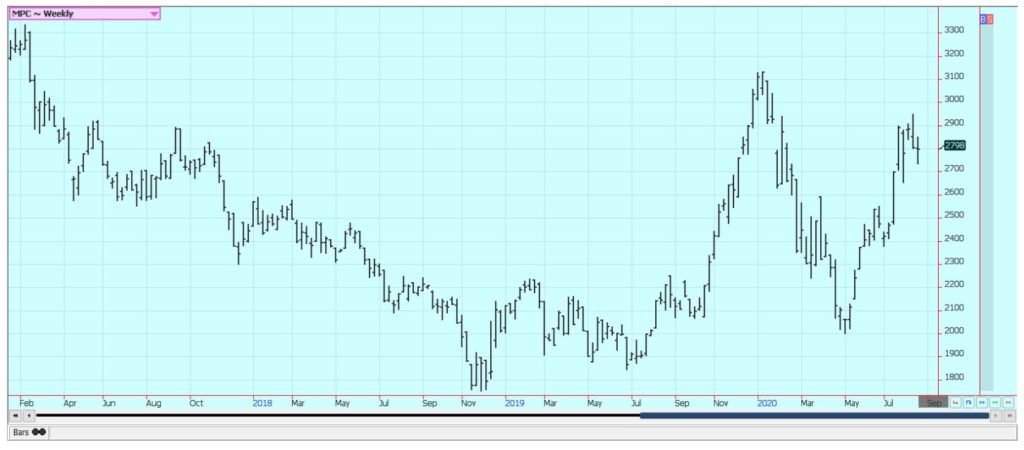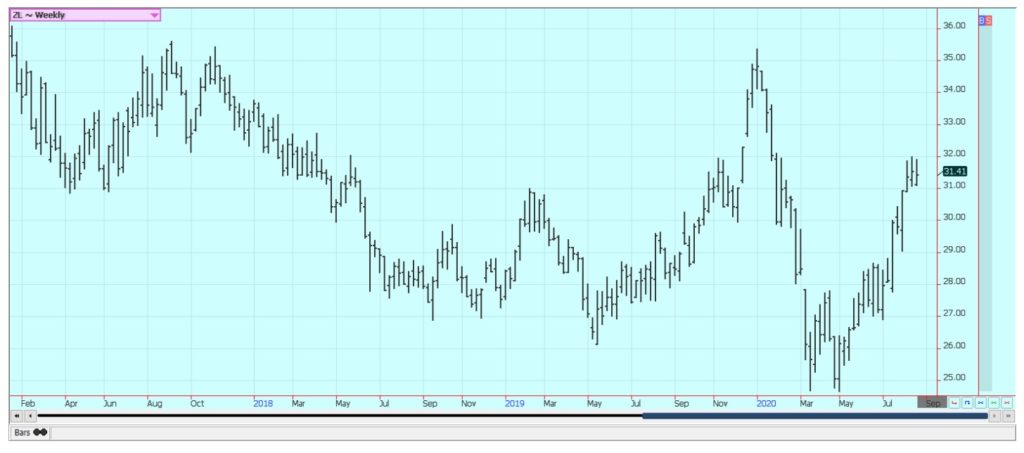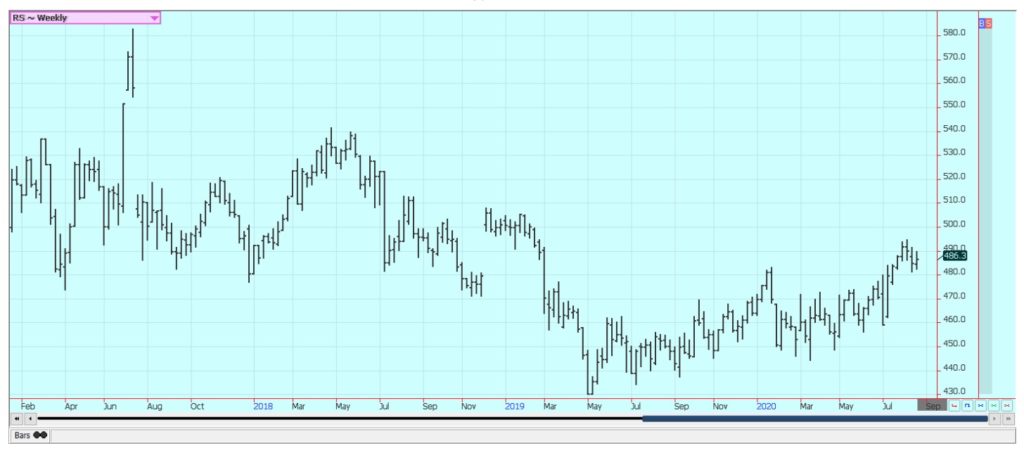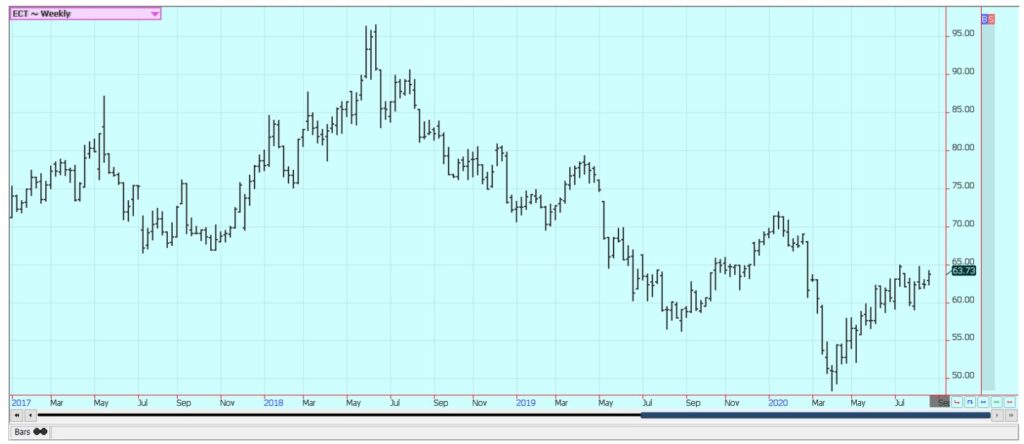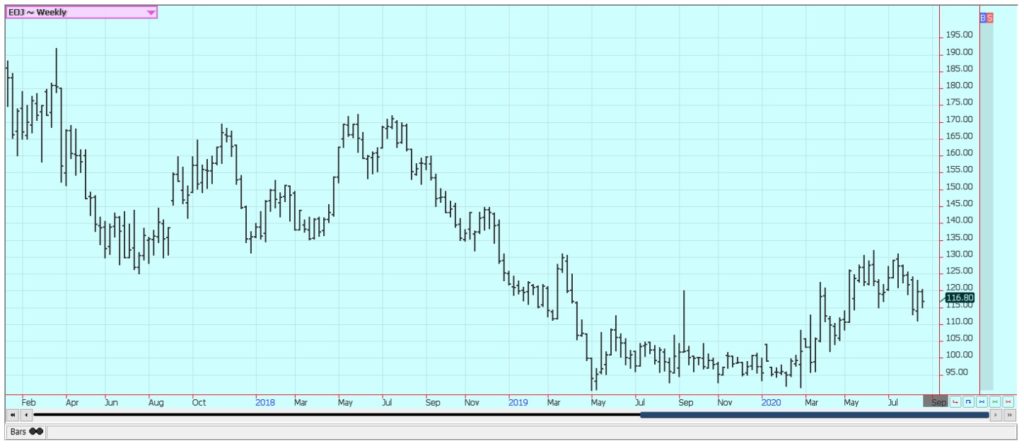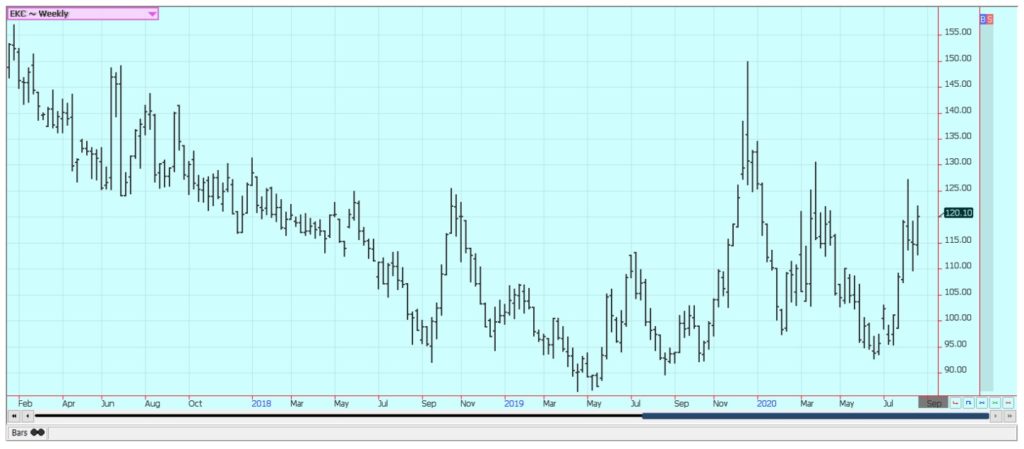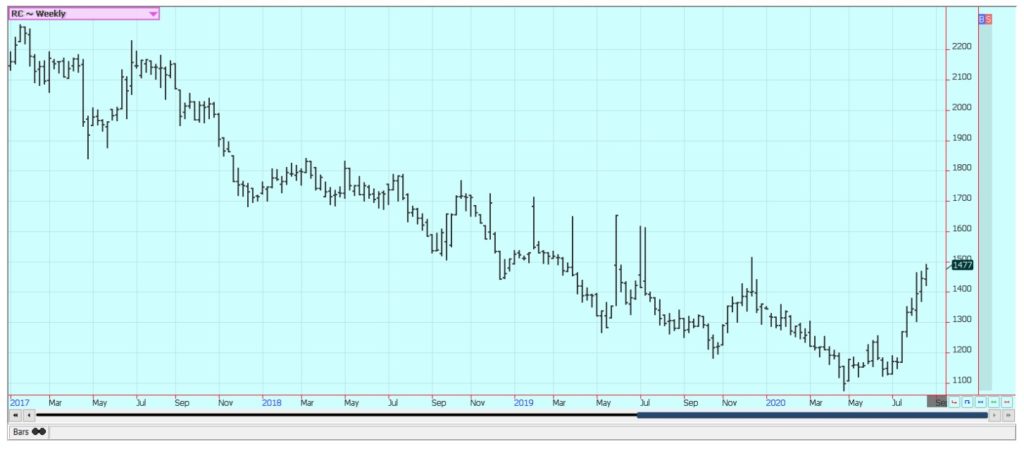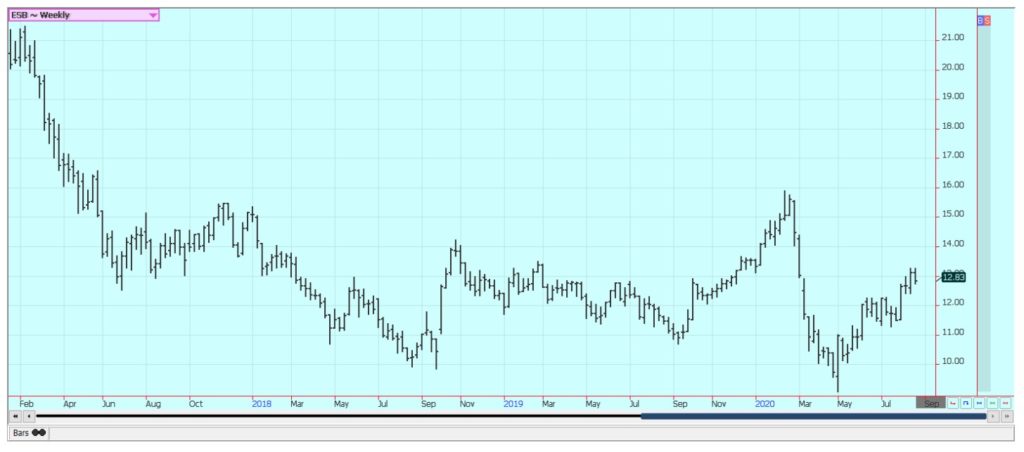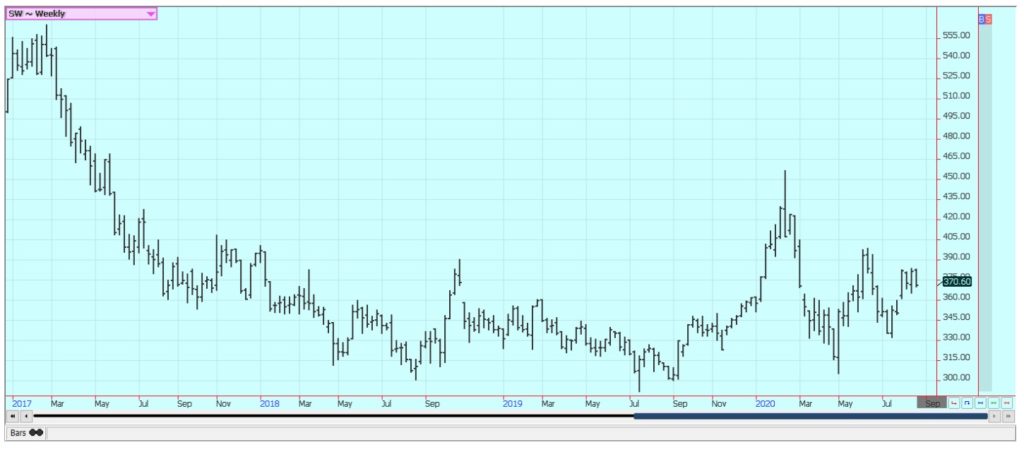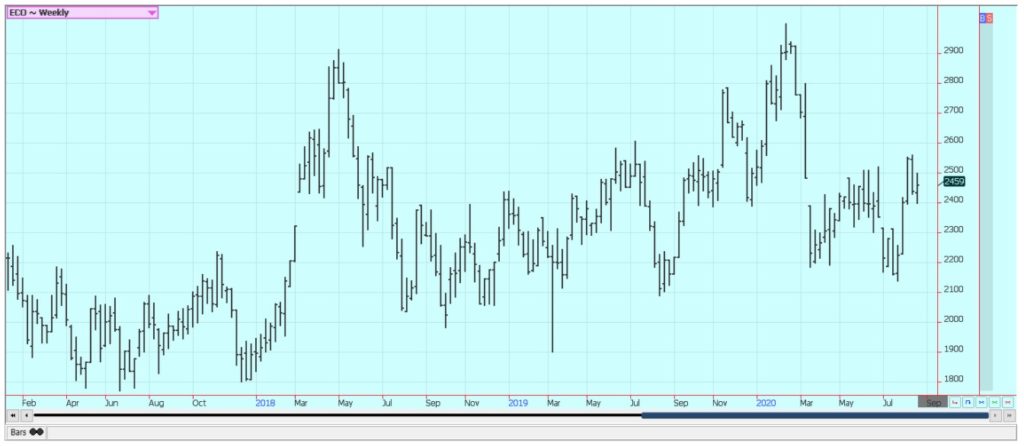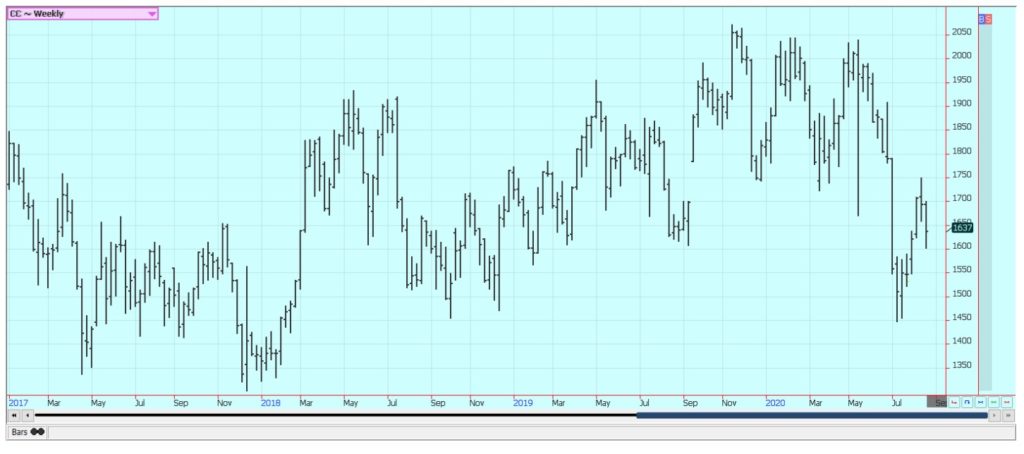Export demand for rice is slow, as buyers are waiting for lower prices
Rice was higher again last week as the harvest is active near the Gulf Coast. The weekly charts show that a small bottom has formed and the daily charts imply that higher prices are coming. New crop prospects appear solid for increased production in the coming year. The area is larger and the growing conditions are mostly good. The crops are called in good condition in Mississippi, Arkansas, and Missouri.
Wheat
Winter Wheat markets were higher last week. The market is still reacting to which way Wheat prices are going here and overseas. Spring Wheat was developing under good growing conditions in both the US and Canada. Harvest has expanded and yield reports are solid in the northern Plains. Yield reports from the central and southern Great Plains have been variable, but generally a little better than expected. Soft Red Winter yields are high. The Winter Wheat markets are in sideways trends on the weekly charts. It is still dry in France and Russia and now Spring Wheat areas of Russia are being affected. Russian Winter Wheat yields have improved over time as harvesters move into areas that had better growing conditions. Australia remains in good condition and is getting beneficial rains. About half of the Argentine Wheat belt is too dry.
Corn
Corn was slightly higher in reaction to demand and the Pro Farmer tour results. A lot of attention was on the results from Iowa due to drought and the derecho that blew through the state. The derecho brought 100 mph winds to parts of Iowa and Illinois and flattened many Corn crops. Some of these crops will not recover. Some silos and other storage and processing facilities were damaged or destroyed. It is not known how much of the Corn can recover. Pro Farmer estimated the Iowa yield at just over 177 bu/acre. Corn in surrounding areas looks good and USDA called for record yield potential in its reports this month. Pro Farmer has found good but not great crops in general in the Midwest. China was a buyer of US Corn again late last week.
Soybeans and Soybean Meal
Soybeans were a little lower after making new highs for the move. The Pro Farmer crop tour found a lot of good looking Soybean plants with plenty of pods per plant. The Soybeans in Iowa were in much better condition than the Corn as the derecho did not cause as much damage. USDA noted that China had bought a lot of new crop Soybeans in its weekly sales report on Thursday. They bought even more on Friday. China has become a much more active buyer of Soybeans here in the US. Brazil prices are higher for the rest of the world as it starts to run out of Soybeans to export, so China and the rest of the world will look to the US for additional supplies. The US weather is considered mixed for Soybeans with cooler temperatures and some rain in the north, but dry conditions further to the south.
Rice
Rice was higher again last week as the harvest is active near the Gulf Coast. The weekly charts show that a small bottom has formed and the daily charts imply that higher prices are coming. New crop prospects appear solid for increased production in the coming year. The area is larger and the growing conditions are mostly good. The crops are called in good condition in Mississippi, Arkansas, and Missouri. Texas and southern Louisiana field yield reports are strong. Quality is called average to above average. Export demand for the new crop Rice has been slow to develop as buyers wait for lower prices. Domestic demand has also been less. It looks like many buyers bought and hoarded Rice during the first pandemic scare and are now full of supplies.
Palm Oil and Vegetable Oils
Palm Oil closed slightly lower on worries that prices were too high for demand and despite more reports of less production from Malaysia and Indonesia. Demand reports from the private surveyors were down 20% for the month to date. Wire reports from Indonesia last week highlighted more than 8% less production and 7% exports from that country. Flooding and a lack of workers for the plantations have been the reasons to see less production in Malaysia. Palm Oil has been hoping for better demand from importers as world economies slowly open after being closed by the Coronavirus epidemic. Indonesia continues to focus its Palm Oil on internal demand for bio fuels. Soybean Oil was a little lower and Canola was also a little lower. Canola closed higher despite good growing conditions in Canada and the stronger Canadian Dollar. The strength in the Canadian Dollar is more about weakness in the US Dollar than anything going on in Canada. Crop conditions are mostly good and farmers have been selling old crop supplies. The weather has been warm and most areas have seen rain.
Cotton
Cotton closed a little higher for the week and trends are turning up on the weekly charts. West Texas weather remains detrimental for crop development as the region has been very dry and hot. The hot and dry weather extends north into Oklahoma and western Kansas. Export demand for US Cotton has been poor for the last few weeks but was improved last week. Export demand is the primary demand for US Cotton so poor weekly sales means weak overall demand. The retail demand has been slow to develop as many consumers got hurt economically due to stay at home orders during the height of the pandemic and have little disposable funds to spend on clothes. Demand will slowly improve but the industry should have plenty of supplies to work with in the short term. The US weather situation is mixed, with good rains noted in the Southeast and good conditions in the Midsouth. However, it has been very hot and dry in West Texas and farther to the north in the Great Plains and crops there are suffering.
Frozen Concentrated Orange Juice and Citrus
FCOJ was lower for the week and the weekly charts still show down trends. The Coronavirus is still around and is still promoting consumption of FCOJ at home. Restaurant and food service demand has been much less as no one is really dining out. Florida production prospects for the new crop were hurt by an extended flowering period, but the weather is good now with frequent showers to promote good tree health and fruit formation. Import demand to the US should be minimal as US prices remain below those of Europe. Brazil has been too dry and irrigation is being used. Some showers are in the region now to help in Sao Paulo.
Coffee
Futures were higher in New York and higher in London. London was the leader on the rally as demand for Robusta has improved with people staying at home. Chart trends remain up for at least the short term. Vietnam was dry during flowering time and is dry again. Production ideas are lower. Demand overall remains down with the US still locking down due to the Coronavirus resurgence in some states. The demand from coffee shops and other food service operations is still at very low levels. Consumers are still drinking Coffee at home and the return of the Coronavirus outbreak will keep things that way. Reports indicate that consumers at home are consuming blends with more Robusta and less Arabica. Europe is emerging from lockdowns, but the Coronavirus has ramped up as the lockdowns are eased and that bas hurt overall economic activity there. The Brazil harvest is active but shipping and collection have become very difficult due to the widespread outbreak of the Coronavirus there. Even so, the pickers are showing up for work and ports are operating normally. Ideas are that production will be very strong this year as it is the one year for the trees. The strong production ideas are coming despite hot and dry weather seen in the country at flowering time.
Sugar
New York and London were lower. CONAB noted in its most recent report that Brazilian mills are producing more Sugar and less Ethanol this year due to reduced Ethanol demand. Ideas are that there is plenty of Sugar for the world market. Getting the Sugar moved is becoming more difficult with the widespread Coronavirus outbreak in both Brazil and India. India is thought to have a very big crop of Sugarcane this year but getting it into Sugar and into export position has become extremely difficult due to Coronavirus lockdowns. Thailand might have less this year due to reduced planted area and erratic rains during the monsoon season. There are reduced flows from rivers from China to hinder irrigation of the crops.
Cocoa
New York closed about unchanged and London closed lower. The current crop features strong production but there are worries about the next crop due to dry conditions in West Africa. Nigerian traders told the wire services last week that the Nigerian harvest will be delayed by at least a month due to dry weather keeping the pods and beans small and keeping the pods from developing normally. There are a lot of demand worries as the Coronavirus is not going away and could be making a comeback in the US. Europe is still trying to open its markets again but the Coronavirus is still around and consumers are reluctant to buy. Ideas are that Southeast Asia also has good crops.

